Are you a pet parent concerned about your furry friend’s health and vitality? Just like humans, dogs also require essential vitamins and nutrients to thrive. Among these, Vitamin B12 holds significant importance, playing a crucial role in your dog’s overall well-being. But what exactly is Vitamin B12, and why is it essential for dogs? In this comprehensive guide, we delve into everything you need to know about B12 vitamins for dogs, from their functions to deficiency symptoms and dietary sources.
Contents Overview
What is Vitamin B12?
Vitamin B12, also known as cobalamin, is a water-soluble vitamin that plays a vital role in various bodily functions in both humans and dogs. It is essential for the formation of red blood cells, proper neurological function, DNA synthesis, and overall energy metabolism.
Functions of Vitamin B12 in Dogs
Vitamin B12, also known as cobalamin, is a water-soluble vitamin that plays a multitude of crucial roles in a dog’s body. From cellular metabolism to neurological health, B12 is indispensable for maintaining your furry friend’s well-being. Let’s delve deeper into the specific functions of Vitamin B12 in dogs:
- Red Blood Cell Formation:
- Vitamin B12 is essential for the synthesis of hemoglobin, the protein in red blood cells responsible for carrying oxygen from the lungs to various tissues and organs.
- Adequate levels of B12 are crucial to prevent anemia, a condition characterized by a deficiency of red blood cells, which can lead to weakness, fatigue, and other health complications in dogs.
- Neurological Health:
- B12 plays a pivotal role in maintaining optimal neurological function in dogs.
- It is involved in the production of myelin, a protective sheath that surrounds nerve fibers and facilitates the transmission of nerve impulses.
- Deficiency of B12 can lead to neurological symptoms such as weakness, incoordination, tremors, and even seizures in dogs.
- Energy Metabolism:
- Vitamin B12 is a coenzyme in several metabolic pathways that break down fats, proteins, and carbohydrates to release energy.
- It helps convert food into glucose, the primary source of energy for cells, muscles, and tissues.
- Dogs with insufficient B12 levels may experience decreased energy levels, lethargy, and reluctance to engage in physical activities.
- DNA Synthesis:
- B12 is essential for the synthesis of DNA, the genetic material present in every cell.
- It plays a critical role in cell division, growth, and repair, ensuring the proper development and functioning of tissues and organs in dogs.
- Without adequate B12, dogs may experience impaired cell proliferation and tissue regeneration, affecting their overall health and vitality.
- Gastrointestinal Health:
- Vitamin B12 is involved in maintaining the health of the gastrointestinal tract in dogs.
- It contributes to the production of stomach acid and digestive enzymes necessary for the breakdown and absorption of nutrients from food.
- Deficiency of B12 can lead to gastrointestinal issues such as diarrhea, vomiting, and poor appetite in dogs.
Signs of B12 Deficiency in Dogs
Vitamin B12 deficiency can have detrimental effects on your dog’s health, impacting various bodily functions and systems. Recognizing the signs of B12 deficiency is crucial for prompt diagnosis and treatment to prevent further complications. Here are detailed descriptions of the signs and symptoms commonly associated with B12 deficiency in dogs:
- Weakness and Fatigue:
- Dogs with B12 deficiency may exhibit generalized weakness and lethargy, appearing tired and lacking energy even during routine activities.
- They may be reluctant to engage in physical exercise or play, displaying decreased stamina and endurance compared to their usual behavior.
- Loss of Appetite:
- A decrease in appetite or complete loss of interest in food is a common symptom of B12 deficiency in dogs.
- Affected dogs may refuse meals or show disinterest in treats, leading to weight loss and nutritional deficiencies if left unaddressed.
- Weight Loss:
- B12 deficiency can result in unexplained weight loss in dogs, despite maintaining a regular diet.
- This weight loss may be gradual or sudden and can be accompanied by muscle wasting and decreased body condition.
- Digestive Issues:
- Gastrointestinal symptoms such as diarrhea, vomiting, and flatulence are frequently observed in dogs with B12 deficiency.
- The digestive disturbances may vary in severity, ranging from occasional episodes of loose stools to chronic diarrhea and gastrointestinal discomfort.
- Pale Gums:
- Anemia, resulting from inadequate red blood cell production due to B12 deficiency, can lead to pale or white gums in dogs.
- Pale gums indicate decreased oxygen-carrying capacity in the blood, which can cause weakness, fatigue, and shortness of breath in affected dogs.
- Neurological Symptoms:
- Severe B12 deficiency can affect the nervous system, leading to neurological symptoms such as weakness, incoordination, tremors, and seizures in dogs.
- These neurological manifestations may progress if the deficiency is left untreated, potentially causing irreversible damage to the nervous tissues.
Dietary Sources of Vitamin B12 for Dogs
Ensuring your dog receives an adequate intake of Vitamin B12 is essential for supporting their overall health and well-being. Incorporating foods rich in B12 into your dog’s diet can help prevent deficiencies and maintain optimal levels of this vital nutrient. Here’s a comprehensive look at the dietary sources of Vitamin B12 for dogs:
- Meat:
- Various types of meat serve as excellent sources of Vitamin B12 for dogs. Beef, chicken, turkey, and pork are all rich in B12 and can be included in your dog’s diet in various forms.
- When feeding meat to your dog, opt for lean cuts without added sauces, seasonings, or excessive fat content to promote overall health and prevent digestive issues.
- Fish:
- Fish is another nutritious source of Vitamin B12 for dogs, offering not only B12 but also essential omega-3 fatty acids for heart and skin health.
- Salmon, trout, tuna, and mackerel are particularly rich in Vitamin B12 and can be served cooked or raw, depending on your dog’s preferences and dietary requirements.
- Eggs:
- Eggs are a versatile and nutrient-dense food that can provide your dog with essential vitamins and minerals, including Vitamin B12.
- Both the yolk and the egg white contain B12, making eggs a convenient and accessible option for supplementing your dog’s diet with this essential nutrient.
- Dairy Products:
- Dairy products such as cheese and yogurt can contribute to your dog’s Vitamin B12 intake, but they should be offered in moderation, especially for dogs with lactose intolerance.
- Opt for plain, unsweetened yogurt and low-fat cheese varieties to minimize added sugars and unnecessary fats while still providing beneficial nutrients.
- Organ Meats:
- Organ meats, such as liver, kidney, and heart, are nutrient powerhouses that contain high levels of Vitamin B12 as well as other essential vitamins and minerals.
- Incorporating small amounts of organ meats into your dog’s diet can provide a significant boost of B12 and support overall health and vitality.
- Commercial Dog Foods:
- Many commercial dog foods are formulated to meet the nutritional needs of dogs, including essential vitamins and minerals like Vitamin B12.
- When selecting a commercial dog food, opt for reputable brands that prioritize quality ingredients and nutritional balance to ensure your dog receives adequate B12 from their daily meals.
- Supplements:
- In some cases, your veterinarian may recommend Vitamin B12 supplements for dogs with specific health conditions or dietary deficiencies.
- These supplements come in various forms, including tablets, capsules, and liquid formulations, and should be administered according to your veterinarian’s guidance to ensure safety and efficacy.
How to Ensure Your Dog Gets Enough Vitamin B12
Ensuring your dog receives adequate levels of Vitamin B12 is essential for supporting their overall health and vitality. From choosing the right foods to monitoring their intake and considering supplementation when necessary, there are several strategies you can implement to ensure your furry friend gets enough Vitamin B12. Here’s a detailed guide on how to meet your dog’s B12 needs:
- Provide a Balanced Diet:
- Start by feeding your dog a balanced diet that includes a variety of Vitamin B12-rich foods. Incorporate sources such as meat, fish, eggs, and dairy products into their meals to ensure they receive adequate B12 intake.
- Aim for a balanced ratio of protein, carbohydrates, and fats, along with essential vitamins and minerals, to support your dog’s overall health and well-being.
- Choose High-Quality Ingredients:
- Opt for high-quality ingredients when preparing homemade meals for your dog or selecting commercial dog food. Look for products that list real meat, fish, or eggs as the primary ingredients, rather than fillers or by-products.
- Avoid foods with artificial additives, preservatives, and excessive processing, as these can detract from the nutritional value and quality of the diet.
- Consider Nutritional Supplements:
- If you’re concerned about your dog’s Vitamin B12 intake or suspect a deficiency, consider incorporating nutritional supplements into their diet.
- Consult your veterinarian before starting any supplements to ensure they are appropriate for your dog’s specific needs and health status. Your vet can recommend suitable products and dosage guidelines based on your dog’s age, size, and overall health.
- Regular Veterinary Check-ups:
- Schedule regular check-ups with your veterinarian to monitor your dog’s overall health and nutritional status.
- During routine wellness exams, your vet can assess your dog’s dietary needs, discuss any concerns or changes in their health, and recommend adjustments to their diet or supplementation regimen as needed.
- Monitor Signs of Deficiency:
- Stay vigilant for signs of Vitamin B12 deficiency in your dog, including weakness, fatigue, loss of appetite, digestive issues, pale gums, and neurological symptoms.
- If you notice any of these signs, consult your veterinarian promptly for a thorough evaluation and appropriate management.
- Tailor the Diet to Your Dog’s Needs:
- Consider your dog’s age, breed, size, activity level, and any underlying health conditions when determining their dietary requirements.
- Puppies, seniors, pregnant or nursing dogs, and those with specific health concerns may have unique nutritional needs that require special attention and customization of their diet.
- Stay Informed and Educated:
- Keep yourself informed about canine nutrition and the importance of essential vitamins and nutrients like Vitamin B12.
- Stay updated on the latest research and recommendations from veterinary professionals to ensure you’re providing the best possible care for your furry companion.
Bottom Line
Vitamin B12 is a crucial nutrient for your dog’s overall health and well-being, supporting red blood cell formation, neurological function, and energy metabolism. By understanding the importance of B12 and ensuring your dog’s diet includes adequate sources of this vitamin, you can help them lead a happy and healthy life. Stay vigilant for signs of B12 deficiency, and consult your veterinarian for personalized recommendations to meet your dog’s nutritional needs. With proper care and attention, you can ensure your furry companion thrives with the essential benefits of Vitamin B12.

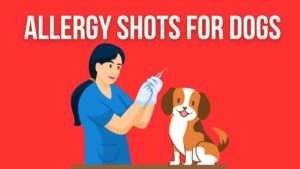


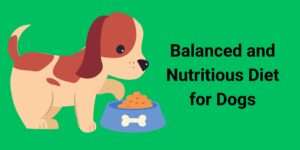
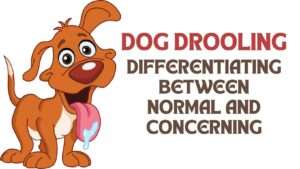



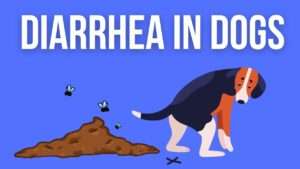
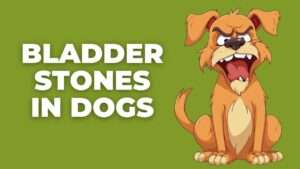


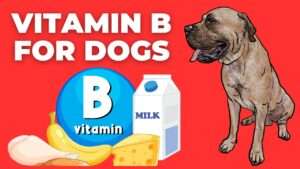


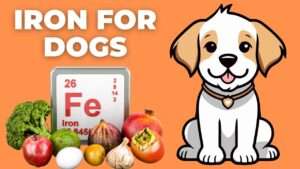
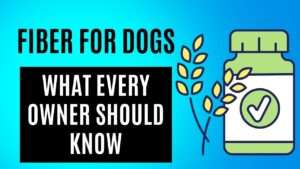


















+ There are no comments
Add yours